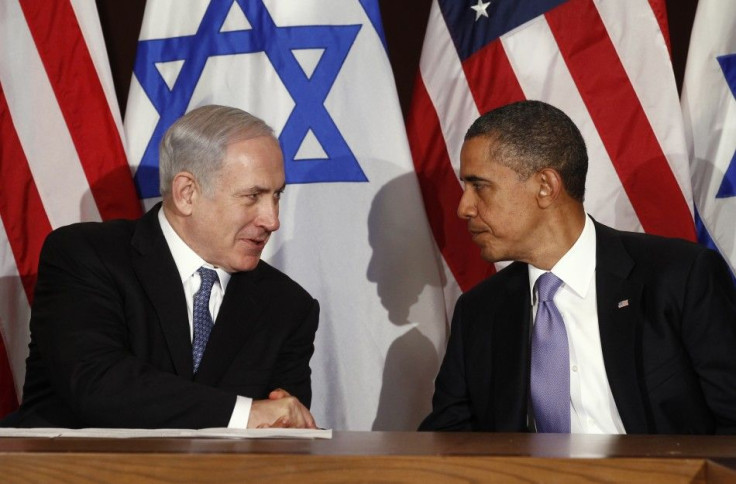U.S. Toughens Defenses in Persian Gulf: Israel-Iran Conflict Imminent?

Hinting at the possibility of a military strike, the Pentagon is bolstering the U.S. defenses in the Persian Gulf as a preemptive measure to counter any attempt by Iran to close the Strait of Hormuz.
The Department of Defense (DoD) has notified the Congress of plans to expand surveillance and preposition new mine-detection and clearing equipment in the area of the Strait of Hormuz, according to a WSJ report.
In addition, the DoD officials wants to modify weapons systems on ships to be prepared against Iranian patrol boats and cruise missiles launched from its shore.
According to a Reuters report, encounters between the U.S. and Iranian boats have become more frequent in recent weeks, a constant reminder of the standoffish atmosphere of the region.
The U.S. sent a Nimitz-class nuclear-powered USS Abraham Lincoln aircraft carrier into the Strait of Hormuz Feb. 14, which sailed provocatively close to the Iran shore accompanied by the powerful Cape St. George destroyer cruising along.
An Iranian patrol boat immediately started tailing the massive U.S. aircraft carrier, but it was eventually turned around.
Iran had previously warned another U.S. aircraft carrier, the USS John C. Stennis, against entering the Strait of Hormuz over a month ago, but has been keeping quiet about the USS Abraham Lincoln.
The U.S. Navy fleet, known as Carrier Strike Group Nine, has been making forays through Hormuz provoking Iran.
According to military experts, U.S. Navy's Fifth Fleet which is patrolling the Gulf (the USS Abraham Lincoln is a part of it) is equipped with scores of fighter jets and destroyers and is more powerful than Iran's navy. The 20-storeyed USS Abraham Lincoln currently has over 5000 sailors.
Though Pentagon is deploying military equipment as a preventive measure, U.S. intelligence officials say it is unlikely that Iran will start military action against the U.S.
In a recent Senate Armed Services Committee hearing about the existing hostilities between the U.S. and Iran, Defense Intelligence Agency Director Lieutenant General Ronald Burgess said if the U.S. decided to launch military action, Iran would not hesitate and the consequences could be catastrophic.
Iran can close the Strait of Hormuz at least temporarily, and may launch missiles against United States forces and our allies in the region if it is attacked, Burgess explained.
Iran could also attempt to employ terrorist surrogates worldwide. However, the agency assesses Iran is unlikely to initiate or intentionally provoke a conflict. Iranian ballistic missiles in development could range across the region and Central Europe, Burgess said.
When asked about Israel's plans to launch an attack on Iran, Burgess said, Israel has not decided to attack Iran, to the best of our knowledge.
Two of Iran's warships entered the Mediterranean Sea last Saturday in the wake of U.S. National Security Advisor Tom Donilon's visit to Israel to discuss Iran's nuclear weapons program with Prime Minister Benjamin Netanyahu.
This is only the second time since the 1979 Islamic revolution that Iranian ships passed through the Suez Canal in an attempt to show Tehran's might to the regional nations.
According to the U.S. Naval commander in the Gulf region, Iran has built up its naval forces in the Gulf and has readied boats that could be used in suicide attacks. Some of the Iranian boats are capable of carrying cruise missiles and rockets.
Speaking about military activity from the Iranian side, the head of the U.S. fleet in Gulf, Rear Admiral Troy Shoemaker, said Feb. 17 that Iran had so far sent a couple of surveillance aircraft, a helicopter and a UAV (unmanned aerial vehicle).
© Copyright IBTimes 2024. All rights reserved.





















